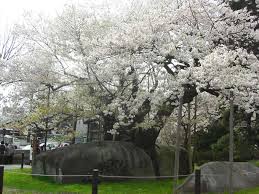A team of Japanese researchers (and one from the U.K.) has found evidence in the remains of ancient Japanese people that suggests that people are not necessarily predisposed to living a violent existence or even to engaging in warfare. In their paper published in the Royal Society journal Biology Letters, the team describes their analysis of the remains of people that lived during the Jomon period (from 13,000 – 800 BC) in what is now Japan, which showed very little evidence of violent behavior or death.
In recent years, scientists have found evidence of many hunter-gatherer groups that behaved in a violent manner, sometimes even banding together to wage war on other people or groups. That has led to more evidence of the common assumption that humans are inherently violent and that war has generally been the result when two or more groups have different ideas of how things should be done. In this new effort, the researchers suggest such findings might be premature as they have found an example of an early hunter-gatherer culture that did not appear to wage war or even behave in a violent manner.
The teams’ study consisted of analyzing the remains of approximately 2,500 people that lived in Japan during the Jomon period, looking for examples of violence, e.g. broken or damaged bones. The team reports that they found evidence of violence in just 1.8 percent of all the adult bones represented and in just 0.89 percent of the population as a whole. A very low number compared to the 12 to 14 percent seen in other hunter-gatherer populations of around the same time period (which strongly suggested a violent existence). This, the researchers claim, suggests that the people of that time lived peacefully among themselves and did not conduct war against others that might have lived nearby. And that, they add, suggests that humans may not be quite as predisposed to violence as others have suggested, which counters other arguments that it was warfare that led people to band together into groups forming communities that allowed for the promotion of intra-group altruism and even more advanced warfare against other such groups—a selective from of evolutionary behavior.

